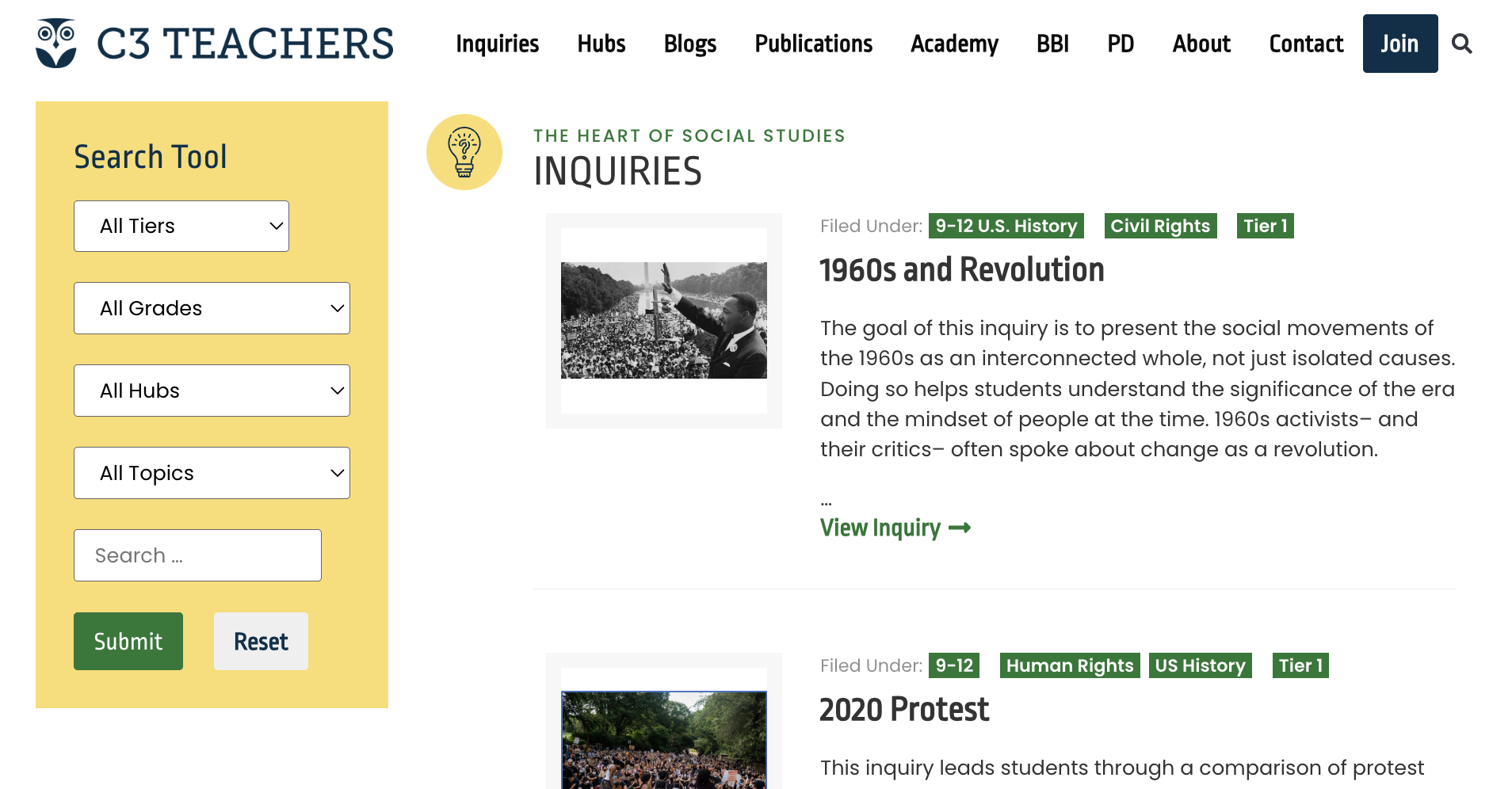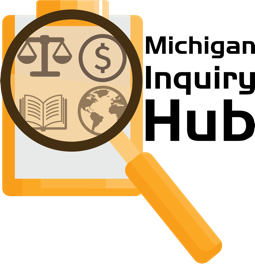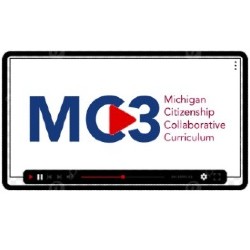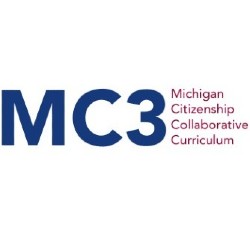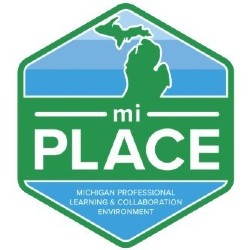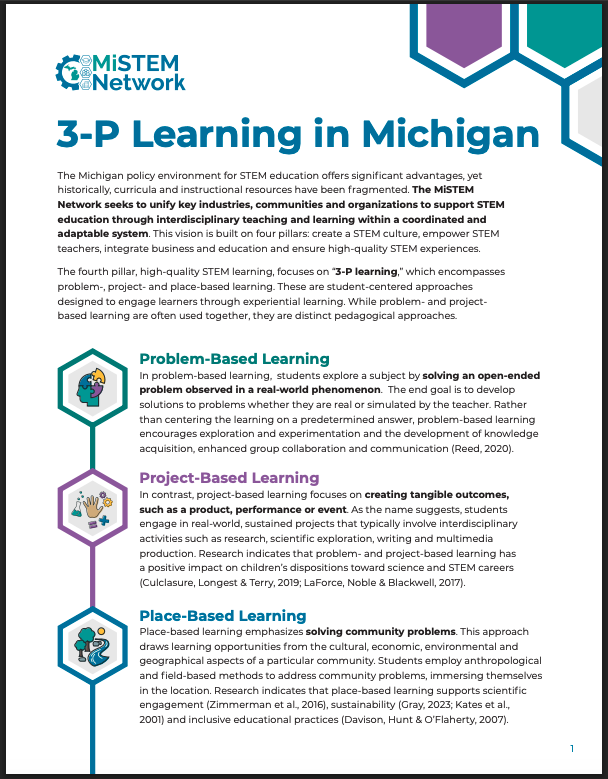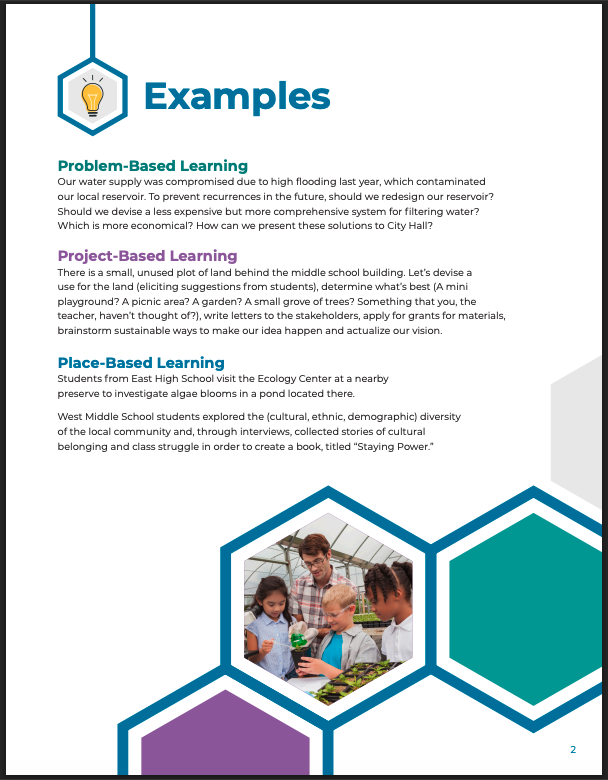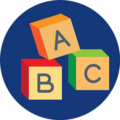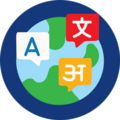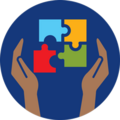Social Studies
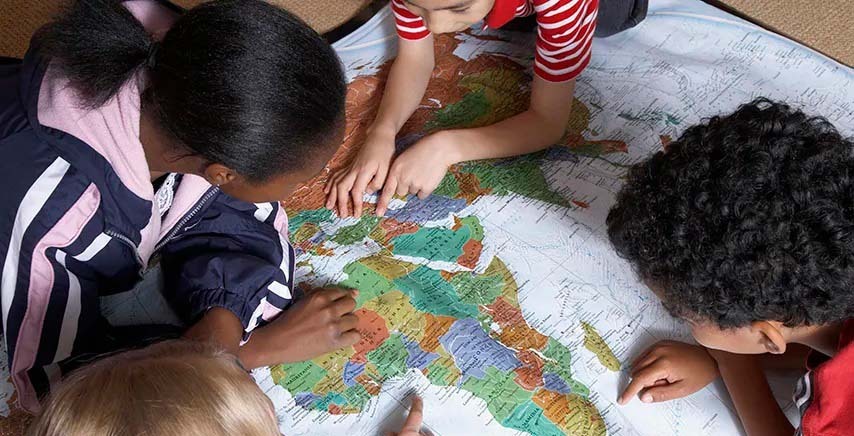
Our Social Studies Team & Resources
Wayne RESA Social Studies team is here to help schools best serve their students as they develop civic competence. Please contact our Social Studies Consultant John Farris (farrisj@resa.net) for support in curriculum, instruction, assessment, and professional learning.
Get the latest Social Studies News!
Join our listserv to keep up with the latest Social Studies news, announcements, and opportunities! Our listservs are organized by grade level and subject area so you only receive the news you can use!
Register Now! Professional Learning Workshops
Social Studies Inquiry Design Collaborative - Feb. 26, April 22
Join us for an enriching professional learning opportunity designed to enhance your social studies instruction! We invite K-12 educators to participate in four dynamic sessions focused on creating inquiry-based lessons aligned with Michigan K-12 Social Studies Standards. Through hands-on collaboration with fellow educators, you'll experience and design inquiries using the C3 Framework's Inquiry Design Model. You will leave each session with an inquiry to implement in your classroom. Don't miss this opportunity to transform your teaching practice and connect with other innovative educators! Participants are encouraged to attend all four sessions, but it is not required. Lunch will be included.
Who should attend?
All Michigan K-12 social studies teachers, coaches, curriculum leaders, administrators
Dates: Participants are encouraged to attend all four sessions, but it is not required.
Wednesday, Sept. 24, 2025; Thursday, Nov. 20, 2025; Thursday, Feb. 25, 2026; Wednesday, April 22, 2026
Time: 8:30 AM - 3:00 PM
Location: Wayne RESA, 33500 Van Born Rd, Wayne, MI 48184 (Map)
Cost: $16 per session. Lunch included.
Register Now!
You will need to sign up for each date individually.
Participants are encouraged to attend all four sessions, but it is not required.
Lunch will be included.
Click the Dates Below to Register:
Making Geography Come Alive - April 15
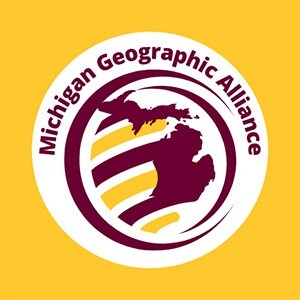 Transform your geography instruction with engaging, interactive strategies that bring the world to life for students. This full-day professional development workshop will explore innovative ways to enhance geographic thinking through hands-on and digital tools. Participants will discover the power of giant maps to create immersive learning experiences, develop inquiry-based approaches that foster critical thinking, and integrate digital mapping technologies to make spatial analysis accessible and meaningful. The session will also emphasize the geographic perspective, helping educators guide students in understanding connections between people, places, and environments. Through collaborative activities, model lessons, and practical applications, attendees will leave with ready-to-use strategies and resources to deepen student engagement and geographic literacy. Whether you teach elementary, middle or high school, this workshop will equip you with tools to make geography dynamic, relevant, and alive in your classroom.
Transform your geography instruction with engaging, interactive strategies that bring the world to life for students. This full-day professional development workshop will explore innovative ways to enhance geographic thinking through hands-on and digital tools. Participants will discover the power of giant maps to create immersive learning experiences, develop inquiry-based approaches that foster critical thinking, and integrate digital mapping technologies to make spatial analysis accessible and meaningful. The session will also emphasize the geographic perspective, helping educators guide students in understanding connections between people, places, and environments. Through collaborative activities, model lessons, and practical applications, attendees will leave with ready-to-use strategies and resources to deepen student engagement and geographic literacy. Whether you teach elementary, middle or high school, this workshop will equip you with tools to make geography dynamic, relevant, and alive in your classroom.
Who should attend?
All Michigan K-12 social studies teachers, coaches, curriculum leaders, administrators
Dates: Wednesday, April 15, 2026
Time: 8:30 AM - 3:00 PM
Location: Wayne RESA, 33500 Van Born Rd, Wayne, MI 48184 (Map)
Cost: FREE!
Build Engagement in Social Studies: One Day, Three Programs - May 4
Build Engagement in Social Studies: One Day, Three Programs
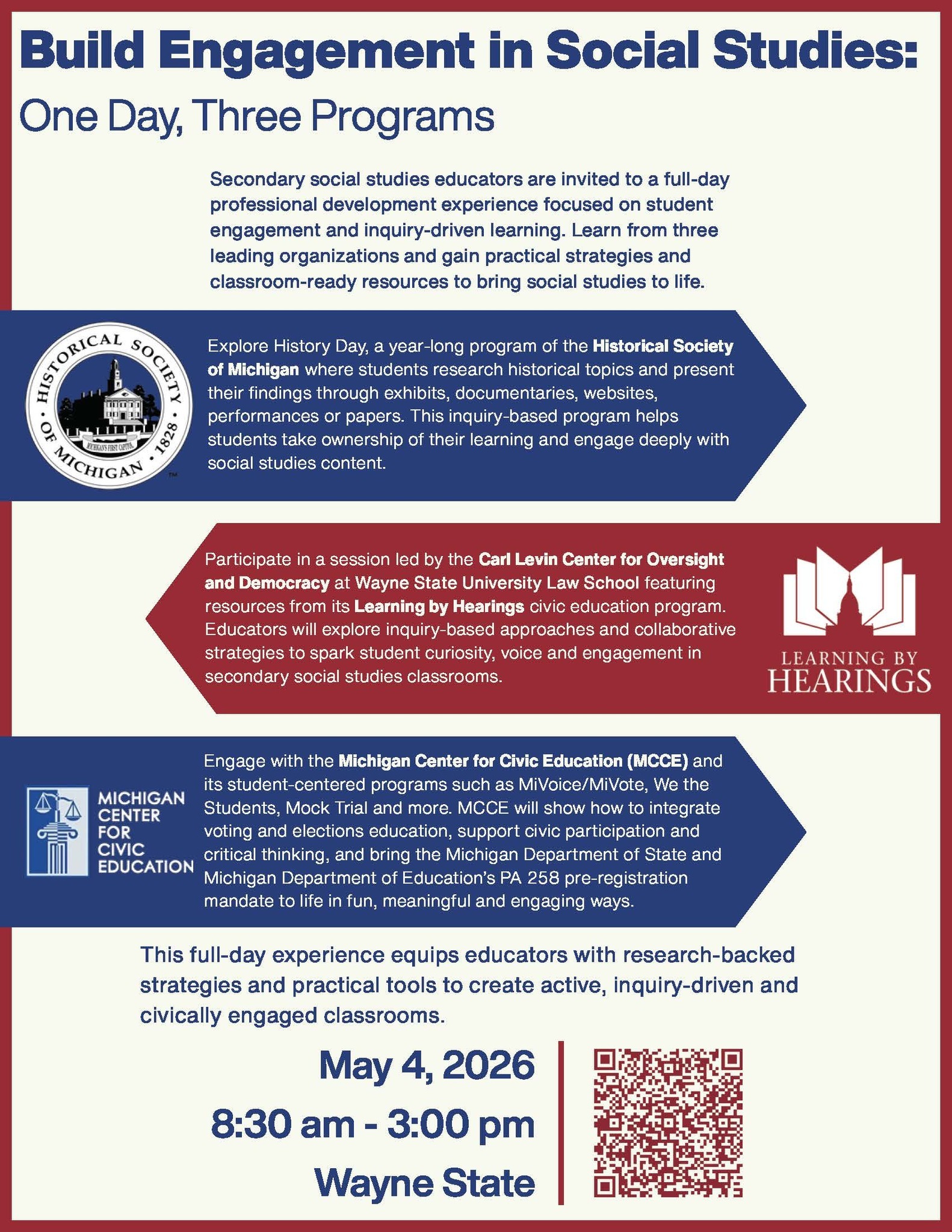
Upcoming PL from the National Council for the Social Studies
NCSS brings you the best educational programming available to the social studies professional, including regular author- and scholar-led webinars. Check out the line up for March and April 2026:
Beyond Silos: Aligning Inclusive Instruction and Inquiry in Social Studies
March 5, 2026 to March 5, 2026
America at 250: Promises, Paradoxes, and the Present. "Who Counts as 'We the People'?"
March 19, 2026 to March 19, 2026
Art as Action: Revolutionary Messages in Paint and Print
March 26, 2026 to March 26, 2026
America at 250: Promises, Paradoxes, and the Present. "A Revolution That Traveled"
April 2, 2026 to April 2, 2026
Economic Literacy Beyond Borders: Teaching the World Economy in a Time of Global Uncertainty
April 14, 2026 to April 14, 2026
The Case For Women’s Colleges in A Democratic Society
April 23, 2026 to April 23, 2026
Inquiry is the Heart of Social Studies in Michigan!
Are you doing inquiry? Check out the resources below to make it happen! For training and support, please reach out to social studies consultant John Farris farrisj@resa.net.
-
Making Inquiry Possible
-
Inquiry in the Michigan Standards
-
Ready-to-Teach Inquiry Units
-
The Michigan Inquiry Hub
-
Teaching with Primary Sources
Making Inquiry Possible
 What makes inquiry possible? Explore the why, what, who, and how of inquiry-based instruction through a series of documentary films that feature teachers working together to make inquiry possible.
What makes inquiry possible? Explore the why, what, who, and how of inquiry-based instruction through a series of documentary films that feature teachers working together to make inquiry possible.
Created by the Making Inquiry Possible Project. Click "Who Made This?" below for credits.
For training and support in using inquiry in Social Studies, please reach out to John Farris farrisj@resa.net.
Why Inquiry?
In two sh ort introductory films, we lay the groundwork for inquiry-based instruction in social studies classrooms and outline the origins of the Making Inquiry Possible (MIP) project, preview the films that are featured on this site, and orient the viewer to the professional learning resources available to support educators in making inquiry possible in their own classrooms and districts.
ort introductory films, we lay the groundwork for inquiry-based instruction in social studies classrooms and outline the origins of the Making Inquiry Possible (MIP) project, preview the films that are featured on this site, and orient the viewer to the professional learning resources available to support educators in making inquiry possible in their own classrooms and districts.
In Part 1, Dr. Kathy Swan tackles the foundational question: Why inquiry?
In Part 2, Dr. Kathy Swan answers the project question: What is the Making Inquiry Possible project?
What Makes Inquiry Possible?
Teaching with inquiry is not a solo endeavor – it requires collaborative efforts of teachers, students, colleagues, and administrators. In this film, we look at one innovative high school in Woodford County, Kentucky that is shifting to inquiry-based instruction. Social studies educators featured in this film show us how inquiry requires a common language of inquiry, trust between teachers and students, and collaboration. In doing so, they help us understand what makes inquiry possible.
What Does Inquiry Look Like?
For teachers interested in implementing inquiry in their classrooms, it ca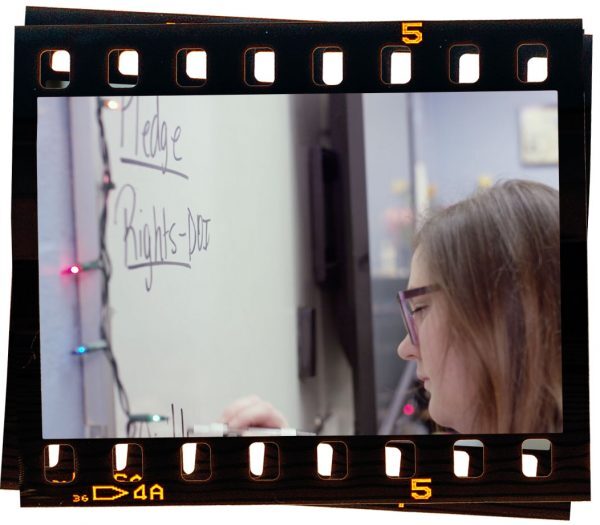 n help to see what inquiry looks like in action! In this film, we feature two teachers implementing the same inquiry, Can the Civics Test Make You a Better Citizen? The teachers lead students through an investigation of a state-mandated civics test, a current graduation requirement for Kentucky students, in order to evaluate the ways in which the test addresses needed knowledge and skills to prepare students for active engagement in civic life. See inquiry come alive as teachers take us through the instructional steps of implementing an inquiry.
n help to see what inquiry looks like in action! In this film, we feature two teachers implementing the same inquiry, Can the Civics Test Make You a Better Citizen? The teachers lead students through an investigation of a state-mandated civics test, a current graduation requirement for Kentucky students, in order to evaluate the ways in which the test addresses needed knowledge and skills to prepare students for active engagement in civic life. See inquiry come alive as teachers take us through the instructional steps of implementing an inquiry.
How Do You Build an Inquiry Culture?
Teaching with 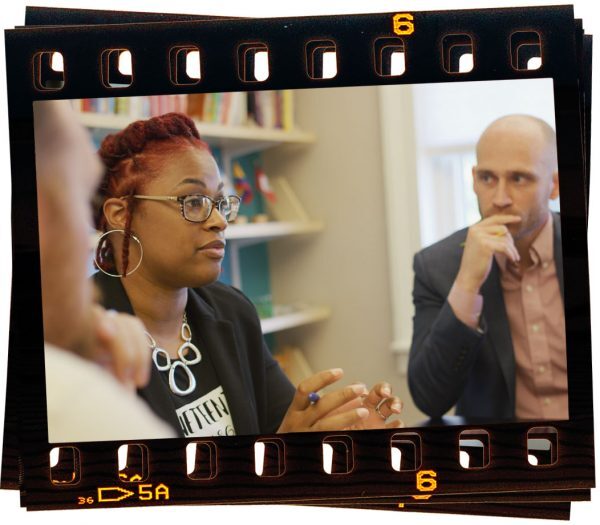 inquiry means honoring a teacher’s expertise and individual craft while at the same time understanding that changing practice requires a collective effort. As teachers shift their instructional approaches to inquiry, they need support from colleagues and administrators. In this film, we feature one urban Kentucky district tackling inquiry by creating an inquiry culture that fits their unique context. The film, How Do You Build An Inquiry Culture?, is intended to be a mirror for educators who want to strengthen collaborative conversations when growing inquiry in schools.
inquiry means honoring a teacher’s expertise and individual craft while at the same time understanding that changing practice requires a collective effort. As teachers shift their instructional approaches to inquiry, they need support from colleagues and administrators. In this film, we feature one urban Kentucky district tackling inquiry by creating an inquiry culture that fits their unique context. The film, How Do You Build An Inquiry Culture?, is intended to be a mirror for educators who want to strengthen collaborative conversations when growing inquiry in schools.
Who Made This?
The Making Inquiry Possible Project (MIP) is a professional learning initiative undertaken by C3 Teachers with support from the University of Kentucky’s College of Education. The MIP project features a series of documentary films and professional learning materials designed to assist educators in implementing inquiry and to facilitate discussions about the triumphs and challenges that teachers, students, and districts experience as they put inquiry-based standards into practice.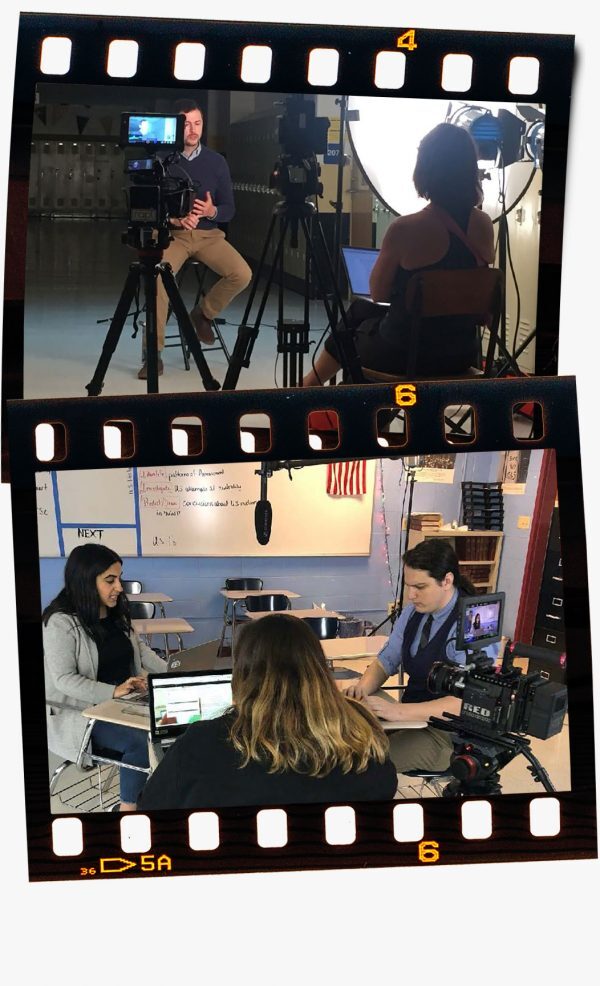
The Teachers
Teachers in the Making Inquiry Possible films deserve stars on an Educators Walk of Fame. Summer, Sarah, Ryan, Ryan, and their colleagues opened their classrooms and, and despite the chaos of the beginning of the pandemic in February/March 2020, they showed us inquiry grit! Portrayals of social studies teachers often make a silly or inane caricature of educators. Not this cast!
Behind the scenes footage would reveal boom microphones, multiple cameras, and extensive lighting packages invading their classroom and meeting spaces. Without flinching, these teachers walked right into the spotlight and articulated the why and the what of meaningful, inquiry-based social studies instruction. What you see in these films is the very best of the profession.
The University of Kentucky
Kathy Swan was the Project Director and Executive Producer of the Making Inquiry Possible (MIP) project. Kathy is a professor of social
studies education at the University of Kentucky and has worked alongside her C3 Teachers colleagues to articulate and champion inquiry
in the great state of Kentucky and across the country. This film project represents her directorial debut.
Ryan Crowley served as a Co-Investigator and Executive Producer of the MIP project. Ryan is an associate professor of social studies education at the University of Kentucky where his research focuses on issues of race and equity in education. His work has intersected with inquiry and the work of C3 Teachers in making inquiry-based teaching more inclusive. Ryan also has an extensive background in moving equipment and played a critical role as the “Key Grip” on location.
Gerry Swan led the professional learning initiative and served as a Co-Investigator on the MIP project. Gerry is an associate professor of Instructional Systems Design and Assistant Dean of Program Assessment at the University of Kentucky. In addition to a background in inquiry in science education, he brings experience in developing MOOC-like professional development to both K-12 and higher education settings. He created the Digital Driver’s License which hosts the MIP professional learning modules. He is the Napster.
Rapt Productions is a film company based in Lexington, Kentucky co-founded by two dynamic and immensely talented filmmakers, Callaway Stivers and Gates Sweeney. Their portfolio ranges from real estate commercials to wedding video projects. This was their (and our) first experience documenting social studies instruction through film, and through the collaborative process, we all received an education about making inquiry possible.
For more information on the Making Inquiry Possible Project, please contact us.
Inquiry in the Michigan Standards
The 2019 Michigan K-12 Standards for Social Studies guide teachers not just on "what" to teach, but also the best way to teach it -- the "how" of Social Studies.

That's why, throughout the document, you'll see phrases like, "Individually and collaboratively, students will engage in planned inquiries..." If you'd like support and training on how you and your team can implement inquiry in Social Studies, please reach out to social studies consultant John Farris farrisj@resa.net.
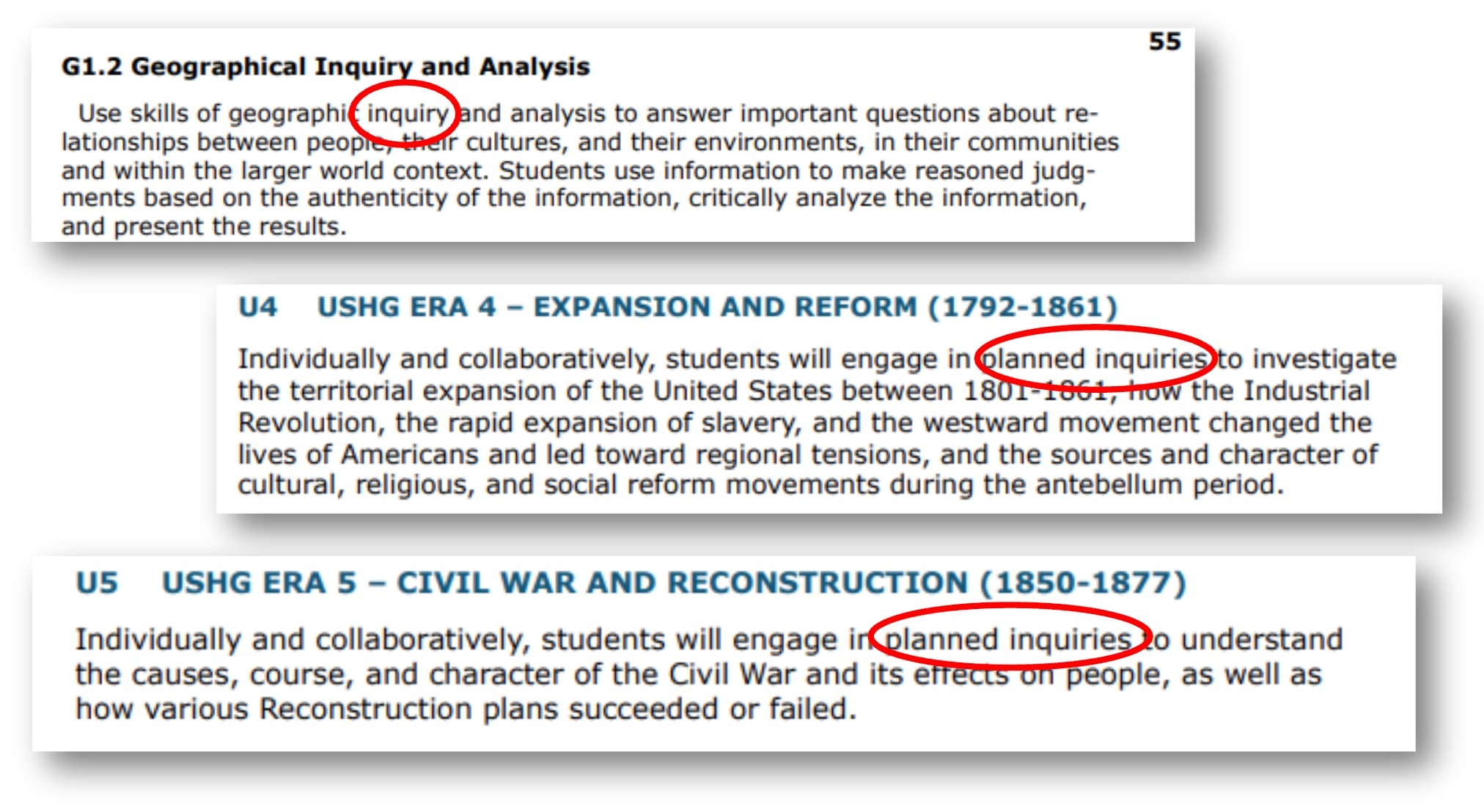
Ready-to-Teach Inquiry Units
C3 Teachers aims to empower teachers as they wrestle with the big ideas and instructional implications of the C3 Framework. Teachers play a critical role in helping students learn academic content using the C3 Inquiry Arc, which outlines the social studies habits of mind, disciplinary tools and conceptual content that students need to become ready for college and career, and most importantly, civic life. As social studies students map their own disciplinary inquiries, C3 Teachers embark on a pedagogical investigation examining and experimenting with their own practice as they support students’ question, learn, apply, analyze, collaborate, express, and act in authentic social studies experiences. C3teachers.org is a place to learn more about that process and to share your experiences with other social studies teachers.
Using Materials from C3 Teachers
Feel free to explore, download, remix, and most important use all the materials on C3 Teachers.
The C3 Teacher initiative was founded by John Lee (North Carolina State University), Kathy Swan (University of Kentucky), and SG Grant (Binghamton University). Kathy, SG, and John lead C3 Framework project and know first hand the critical role teachers play in the implementation and realization of the C3 goals and aspirations. Collectively, their work extends beyond the C3 Framework in helping educators to tackle the challenges of teaching social studies in the 21st Century. They look forward to learning from C3 Teachers and the ways in which they lead the effort!
The Michigan Inquiry Hub
In 2019, Michigan adopted new standards for Social Studies. The standards have always guided the "what" we teach, but the 2019 standards also guide the "how" by adopting the C3 Framework's Inquiry Arc (see page 8 of the MichiganK-12 Standards for Social Studies). The inquiry units at the Michigan Inquiry Hub have been developed by Michigan ISDs and organizations as part of our work implementing inquiry with integrity. To explore and download the inquiries, click the link below.
Teaching with Primary Sources
- Tampering with History: Adapting Primary Sources for Struggling Readers - “History teachers are faced with an impossible dilemma,” write Sam Wineburg and Daisy Martin. While “voices from every corner urge them to use primary sources,” the language in which primary sources are written often makes them dauntingly difficult for students.The authors advocate using simplified versions of documents, which they consider a legitimate practice provided that students are also shown the original document and that it is clear to them that the simplified document is an adaptation. The authors explain how adapting sources for classroom use allows teachers to steer students toward authentic historical inquiry and away from a version of history determined exclusively by the textbook.
- Teaching with Primary Sources Initiative - Through TPS Direct, educators can download lessons in PDF format with goals such as Analyzing Photographs, Analyzing Maps, and Connecting with Primary Sources. The professional development and teaching tools help educators identify excellent sources within the Library's collection to build students' critical thinking skills in an engaging way. Given the wealth of information available online, TPS Direct helps make the process of locating ideal classroom materials easier for busy teachers and administrators.
- The Right Question Institute: Teaching with Primary Sources - Teaching students to ask questions about primary sources helps unlock their magic — sparking curiosity, engagement, and critical thinking. Explore RQI’s free resources and online learning opportunities for using the Question Formulation Technique with primary sources, made possible by the Library of Congress Teaching with Primary Sources (TPS) initiative.
- Teaching American History is a free resource that brings together primary documents, continuing education, and community for American history teachers.
- The National Archives: Teaching with Primary Sources Lesson Plans - This section contains reproducible copies of lesson plans and primary documents from the holdings of the National Archives of the United States. The lessons were written by classroom teachers. It also includes analysis tools.
Teaching with Primary Resources: The Library of Congress Learning Page - Here is a "teachers eye view" of over 7 million historical documents, photographs, films, maps and audio recordings. You will find lessons, features, activities, and classroom tips on how to use the resources of the Library of Congress to teach with primary and secondary resources.
Sources for Primary Sources
American Memory - Millions of digital items that document American history and culture.
Lyrical Legacies - An in-depth look at unique song and poetry documents from the Library's digital collections.
Performing Arts Encyclopedia - The Library's collection of scores, sheet music, audio, films and more.
Docs Teach - This unique site within the National Archives allows you to search and build your own primary source portfolio as well as create your own interactive activities with them.
Today in History - Check on what happened today in History!
American Journeys - American Journeys contains more than 18,000 pages of eyewitness accounts of North American exploration, from the sagas of Vikings in Canada in AD1000 to the diaries of mountain men in the Rockies 800 years later. Read the words of explorers, Indians, missionaries, traders and settlers as they lived through the founding moments of American history. View, search, print, or download more than 150 rare books, original manuscripts, and classic travel narratives from the library and archives of the Wisconsin Historical Society.
The Antiques Roadshow Teacher's Guides - These guides help educators integrate material culture into their classrooms. Using the show's artifacts, it presents teaching strategies and questions to ask on how people make, collect, and use material objects.
Milestone Documents - Monthly e-newsletter helps U.S. history teachers engage their students in historical research and understanding. Each issue features activity guides, in-depth analysis, and helpful teaching hints related to important primary source documents. Click the "sign up" button below to have the newsletter automatically e-mailed each month.
Elementary Resources
- Biographies of the Founding Fathers - Recount how the Constitution was created and ratified. Learn about the Bill of Rights. Read biographies of the Founding Fathers.
- Center for Civic Education - The Center for Civic Education, in collaboration with the American Association of School Administrators, offers lessons suggested for use at each of the grade levels, Kindergarten to Grade 12.
- National Constitution Center - Use their lesson plans or one of their great online events or virtual field trips for Constitution Day.
Middle School Resources
- Scholastic Lesson Plans - Preamble to the Constitution---What is Good Government Anyway? is a lesson plan written for Grades 3 to 5.The emphasis is on learning how some aspects of good government are included right in the Preamble.The culmination of the lesson is a mural.
- A More Perfect Union - Students view a slideshow outlining events leading to the U.S. Constitution and participate in a discussion activity on "enduring questions."
- Biographies of the Founding Fathers - Recount how the Constitution was created and ratified. Learn about the Bill of Rights and read biographies of the Founding Fathers.
- Center for Civic Education - The Center for Civic Education, in collaboration with the American Association of School Administrators, offers a variety of K-12 lessons.
- National Constitution Center - Use their lesson plans or one of their great online events or virtual field trips for Constitution Day.
- ConstitutionDay.com website - Along with information on the Preamble and Ratification, this site provides an extensive list of Constitution facts, some items for sale, press releases, flyers and more.
- Constitution Facts - ConstitutionFacts.com provides a series of free educational resources and Internet links to help educators celebrate Constitution Day each year.
- National Endowment for the Humanities Constitution Day lessons
- Full Text of the Articles of Confederation - Every textbook that discusses the Constitution identifies it as the replacement for the faulty Articles of Confederation. Here is a resource that gives the entire text of the Articles of Confederation, something not found in textbooks.
- iCivics.Org - Online games, lessons, and materials on civics subjects, including the Constitution
- Interactive Constitution Timeline - This interactive timeline of events marks more than 200 years of our constitutional history. These events tell the evolving story of our Constitution & the role it continues to play in our lives. See headlines, hear debates, explore graphs and maps.
- Library of Congress - They have compiled a variety of materials from across its collections. Explore these rich resources and features to learn more about one of America's most important documents.
- State Bar of Michigan- These are lessons developed and/or compiled the State Bar of Michigan and are primarily focused on grades 6-7-8.
High School Resources
- Annenberg Classroom - These comprehensive resources include a Constitution Guide, Videos, Timelines, Issues, Games & Interactives, PDF lessons and iBooks
- Bill of Rights Institute - Creative lesson plans grouped into four categories including "American Lives, Primary Source Activities, Bill of Rights in the News and Landmark Supreme Court cases and the Constitution" are available on this site.
- Biographies of the Founding Fathers - Recount how the Constitution was created and ratified. Learn about the Bill of Rights and read biographies of the Founding Fathers.
- Center for Civic Education - The Center for Civic Education, in collaboration with the American Association of School Administrators, offers a variety of K-12 lessons.
- ConstitutionDay.com website - Along with information on the Preamble and Ratification, this site provides an extensive list of Constitution facts, some items for sale, press releases, flyers and more.
- Constitution Facts - ConstitutionFacts.com provides a series of free educational resources and Internet links to help educators celebrate Constitution Day each year.
- Library of Congress - They have compiled a variety of materials from across its collections. Explore these rich resources and features to learn more about one of America's most important documents
- Major Debates of the Constitutional Convention - Students read an article on the major issues and compromises tackled during the Constitutional Convention and participate as commission members in discussing representation in the modern U.S. Senate.
- National Constitution Center - This website is supported by the National Constitution Center, American Bar Association, Bill of Rights Institute, C-SPAN, Center for Educational Technologies, the Campaign for the Civic Mission of Schools, The Constitution Project, The Council for Excellence in Government, courtTV, Justice Learning, The National Archives, and Scholastic. This kind of collaboration creates a sampler of the best work of the leading organizations for education about our government.
- National Archives Teaching With Documents - Lessons about the new nation using primary sources, including the U.S. Constitution.
- Our Documents.Gov - To help us think, talk and teach about the rights and responsibilities of citizens in our democracy, we invite you to explore 100milestone documents of American history. These documents reflect our diversity and our unity, our past and our future, and mostly our commitment as a nation to continue to strive to "form a more perfect union.
- The Constitution & The 3 Branches of Gov: Lesson Plans - These three lessons were created by Amy Bloom, former History/Social Studies Consultant at Oakland Schools.
- Consource.org - While not specific to Constitution Day exclusively, this online resource for Constitutional research and education. Continually expanding in scope, it provides free public access to what is fast becoming the world’s most comprehensive online library of source documents related to the U.S. Constitution.
- Constitution Day (PBS NewsHour) The 1965 Alabama Literacy Test - This is a unique opportunity to discuss the document itself in the context of voting and elections
- Text of the Articles of Confederation (Full) - Every textbook that discusses the Constitution identifies it as the replacement for the faulty Articles of Confederation. Here is a resource that gives the entire text of the Articles of Confederation, something not found in textbooks.
- U.S. Constitution Online Exhibit: National Archives and Records Administration - Essays, online exhibit, images of the original document, and a printer-friendly transcript.
- Virginia Statute for Religious Freedom - Students read an article on the struggle for separation of church and state and participate in a hypothetical debate between James Madison and Patrick Henry on the issue.
- New York Times Constitution Day Planning Guide - This guide is a compilation of planning suggestions from The New York Times Learning Network and the American Democracy Project.
Teaching with the MC3 Curriculum
Research Spotlight
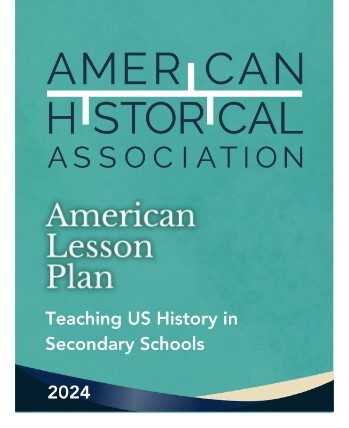 What Are American Students Learning about US History?
What Are American Students Learning about US History?
American History Lesson Plan: Teaching US History in Secondary Schools distills insights gathered during the American Historical Association's two-year exploration of secondary history education to illuminate the three levels where decisions are made about what students learn in US history: the state, the district, and the teacher. Combining a 50-state appraisal of standards and legislation with a nine-state dive into local contexts, we commissioned a survey of over 3,000 middle and high school US history educators, conducted long-form interviews with over 200 teachers and administrators, and collected thousands of pages of instructional materials from small towns to sprawling suburbs to big cities.
 How Social Studies Improves Elementary Literacy
How Social Studies Improves Elementary Literacy
Recent research shows that growing students’ knowledge of the world through social studies has a greater impact on literacy than increasing English language arts instruction time.
The Marginalization of Elementary Social Studies in Michigan
This infographic presents data collected from elementary teachers and administrators from across the state of Michigan. Districts in every Michigan county participated in this survey, with over 1,000 survey responses collected. A team of social studies leaders in Michigan– representatives from the state department of education, intermediate school districts, regional educational service agencies, content area organizations, and Michigan universities–designed the survey and analyzed the data.
Survey question topics included school and district demographic data, amount of time spent teaching social studies, amount of time spent teaching academic subjects other than social studies (English-language arts, science, mathematics), instructional resources used to teach social studies, the use of inquiry when teaching social studies, professional development opportunities, and barriers to teaching social studies.
Overall, the results highlighted the importance of “time” in teaching social studies and the marginalization of social studies at the elementary level. These data illustrate the need for a deeper commitment to social studies education from school districts, a reconceptualization of K-5 standards, more opportunities for teachers’ professional development, and a mindshift among the public about why social studies for our youngest learners is critical.
Teaching Resources
Resources for Honoring Heritage Months
Constitution Day Resources
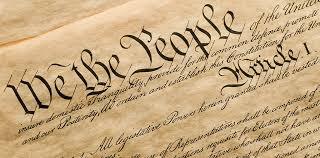 This Congressional initiative is authorized by Section 111 of Division J of Pub. L. 108 of the Consolidated Appropriations Act, 2005, Dec. 8, 2004; 118 Stat. 2809, 3344 Department, Section 111(b) states each educational institution that receives Federal funds for a fiscal year shall hold an educational program on the United States Constitution on September 17 of such year for the students served by the educational institution For purposes of the Department implementation of this requirement educational institutions includes but is not limited to local educational agencies institutions of higher education receiving Federal funding from the Department.
This Congressional initiative is authorized by Section 111 of Division J of Pub. L. 108 of the Consolidated Appropriations Act, 2005, Dec. 8, 2004; 118 Stat. 2809, 3344 Department, Section 111(b) states each educational institution that receives Federal funds for a fiscal year shall hold an educational program on the United States Constitution on September 17 of such year for the students served by the educational institution For purposes of the Department implementation of this requirement educational institutions includes but is not limited to local educational agencies institutions of higher education receiving Federal funding from the Department.
Educational institutions receiving Federal funds from the U.S. Department of Education must implement the statutory requirement pertaining to the United States Constitution, on a date designated by statute as Constitution Day and Citizenship Day.
Section 111 requires that Constitution Day be held on September 17 of each year, commemorating the September 17, 1787 signing of the Constitution. However, when September 17 falls on a Saturday, Sunday, or holiday, Constitution Day shall be held during the preceding or following week.
Please contact John Farris (farrisj@resa.net) if you use other resources that you would like to have posted.
Elementary Resources
- Biographies of the Founding Fathers - Recount how the Constitution was created and ratified. Learn about the Bill of Rights. Read biographies of the Founding Fathers.
- Center for Civic Education - The Center for Civic Education, in collaboration with the American Association of School Administrators, offers lessons suggested for use at each of the grade levels, Kindergarten to Grade 12.
- National Constitution Center - Use their lesson plans or one of their great online events or virtual field trips for Constitution Day.
Middle School Resources
- Scholastic Lesson Plans - Preamble to the Constitution---What is Good Government Anyway? is a lesson plan written for Grades 3 to 5.The emphasis is on learning how some aspects of good government are included right in the Preamble.The culmination of the lesson is a mural.
- A More Perfect Union - Students view a slideshow outlining events leading to the U.S. Constitution and participate in a discussion activity on "enduring questions."
- Biographies of the Founding Fathers - Recount how the Constitution was created and ratified. Learn about the Bill of Rights and read biographies of the Founding Fathers.
- Center for Civic Education - The Center for Civic Education, in collaboration with the American Association of School Administrators, offers a variety of K-12 lessons.
- National Constitution Center - Use their lesson plans or one of their great online events or virtual field trips for Constitution Day.
- ConstitutionDay.com website - Along with information on the Preamble and Ratification, this site provides an extensive list of Constitution facts, some items for sale, press releases, flyers and more.
- Constitution Facts - ConstitutionFacts.com provides a series of free educational resources and Internet links to help educators celebrate Constitution Day each year.
- National Endowment for the Humanities Constitution Day lessons
- Full Text of the Articles of Confederation - Every textbook that discusses the Constitution identifies it as the replacement for the faulty Articles of Confederation. Here is a resource that gives the entire text of the Articles of Confederation, something not found in textbooks.
- iCivics.Org - Online games, lessons, and materials on civics subjects, including the Constitution
- Interactive Constitution Timeline - This interactive timeline of events marks more than 200 years of our constitutional history. These events tell the evolving story of our Constitution & the role it continues to play in our lives. See headlines, hear debates, explore graphs and maps.
- Library of Congress - They have compiled a variety of materials from across its collections. Explore these rich resources and features to learn more about one of America's most important documents.
- State Bar of Michigan- These are lessons developed and/or compiled the State Bar of Michigan and are primarily focused on grades 6-7-8.
High School Resources
- Annenberg Classroom - These comprehensive resources include a Constitution Guide, Videos, Timelines, Issues, Games & Interactives, PDF lessons and iBooks
- Bill of Rights Institute - Creative lesson plans grouped into four categories including "American Lives, Primary Source Activities, Bill of Rights in the News and Landmark Supreme Court cases and the Constitution" are available on this site.
- Biographies of the Founding Fathers - Recount how the Constitution was created and ratified. Learn about the Bill of Rights and read biographies of the Founding Fathers.
- Center for Civic Education - The Center for Civic Education, in collaboration with the American Association of School Administrators, offers a variety of K-12 lessons.
- ConstitutionDay.com website - Along with information on the Preamble and Ratification, this site provides an extensive list of Constitution facts, some items for sale, press releases, flyers and more.
- Constitution Facts - ConstitutionFacts.com provides a series of free educational resources and Internet links to help educators celebrate Constitution Day each year.
- Library of Congress - They have compiled a variety of materials from across its collections. Explore these rich resources and features to learn more about one of America's most important documents
- Major Debates of the Constitutional Convention - Students read an article on the major issues and compromises tackled during the Constitutional Convention and participate as commission members in discussing representation in the modern U.S. Senate.
- National Constitution Center - This website is supported by the National Constitution Center, American Bar Association, Bill of Rights Institute, C-SPAN, Center for Educational Technologies, the Campaign for the Civic Mission of Schools, The Constitution Project, The Council for Excellence in Government, courtTV, Justice Learning, The National Archives, and Scholastic. This kind of collaboration creates a sampler of the best work of the leading organizations for education about our government.
- National Archives Teaching With Documents - Lessons about the new nation using primary sources, including the U.S. Constitution.
- Our Documents.Gov - To help us think, talk and teach about the rights and responsibilities of citizens in our democracy, we invite you to explore 100milestone documents of American history. These documents reflect our diversity and our unity, our past and our future, and mostly our commitment as a nation to continue to strive to "form a more perfect union.
- The Constitution & The 3 Branches of Gov: Lesson Plans - These three lessons were created by Amy Bloom, former History/Social Studies Consultant at Oakland Schools.
- Consource.org - While not specific to Constitution Day exclusively, this online resource for Constitutional research and education. Continually expanding in scope, it provides free public access to what is fast becoming the world’s most comprehensive online library of source documents related to the U.S. Constitution.
- Constitution Day (PBS NewsHour) The 1965 Alabama Literacy Test - This is a unique opportunity to discuss the document itself in the context of voting and elections
- Text of the Articles of Confederation (Full) - Every textbook that discusses the Constitution identifies it as the replacement for the faulty Articles of Confederation. Here is a resource that gives the entire text of the Articles of Confederation, something not found in textbooks.
- U.S. Constitution Online Exhibit: National Archives and Records Administration - Essays, online exhibit, images of the original document, and a printer-friendly transcript.
- Virginia Statute for Religious Freedom - Students read an article on the struggle for separation of church and state and participate in a hypothetical debate between James Madison and Patrick Henry on the issue.
- New York Times Constitution Day Planning Guide - This guide is a compilation of planning suggestions from The New York Times Learning Network and the American Democracy Project.
Resources for Teaching Personal Finance
Section 380.1278a of the Revised School Code requires Michigan students entering 8th grade in 2023 to complete a ½ credit course in personal finance that meets subject area content expectations developed by the Michigan Department of Education (MDE) and approved by the State Board of Education (SBE).
Students can meet the personal finance requirement in several ways:
By meeting the personal finance content expectations in a stand-alone 1-semester personal finance course, for which they will receive ½ credit.
By meeting the personal finance content expectations as part of another course (for example, an economics course, a math course, or a CTE course), for which they will receive ½ credit for the course, plus another ½ credit for meeting the personal finance requirements. So, for example, if they meet the PF content requirements in a one-semester economics course, they will receive ½ credit for taking the economics course, plus another ½ credit for meeting the PF content requirements, for a total of 1 credit. Or, if they meet the PF content requirements as part of a two-semester course like math, they will receive 1 credit for the course, plus ½ credit for meeting the PF content requirements, for a total of 1.5 credits.
Students can meet the personal finance content expectations by testing out of a personal finance course, for which they will receive ½ credit.
MDE’s website Personal Finance: Requirements and Resources has more information, including the PDF “Personal Finance Course/Credit Requirements,” which goes into more detail.
Personal Finance Curriculum Resources
- Next Gen Personal Finance(NGPF)
- Per Section 380.1165 of the Revised School Code, the MDE has selected the NGPF Program as a model curriculum. This is only a model, and districts can choose to use it or not.
- NGPF MI Curriculum Crosswalk
- NGPF Starter Pack
- NGPF Units
- NGPF Academy
- Junior Achievement (JA) Resources
- Personal Finance TEACH
- Michigan Council on Economic Education (MCEE)
- Michigan Open Book Project: Economics and You
- Michigan Social Studies Hub
- JA Supports the MCEE Teacher Professional Development
- MI Money Matters
The Michigan Social Studies Hub
The Michigan Social Studies Hub provides a centralized collection of resources for Michigan educators implementing the new social studies standards and the College, Career, and Civic Life (C3) Framework, including PDFs of the standards, Inquiry Design Model (IDM) materials, professional development, and tools for curriculum and assessment. The hub was created to help local districts in Michigan understand and apply the revised standards by offering a variety of tools, resources, and professional learning opportunities.Key components and resources offered by the hub:
- Michigan Social Studies Standards: Access to the official standards documents and related guidance for K-12 social studies.
- C3 Framework & Inquiry Design Model (IDM): Tools and resources that help educators use the C3 Framework to create inquiry-based curriculum and lessons.
- Curriculum Resources: Resources such as the GIANTS project (free, open-source curriculum) and the Michigan Open Book Project (open-educational resources) that support teaching the revised standards.
- Professional Development: Information and resources for ongoing professional learning to support educators.
- Curriculum, Instruction, and Assessment Resources: Tools and guidance to help teachers develop and implement high-quality social studies education.
3P in Social Studies Education
The 3P approaches—Problem-Based Learning (PBL), Project-Based Learning (PBL), and Place-Based Learning (PBL)—are often associated with STEM education. However, these strategies can also be effectively applied in Social Studies to foster critical thinking, collaboration, and a deeper understanding of social issues, history, and culture. These approaches are a key focus of the Teaching Diverse Histories Summit, which emphasizes inquiry-based learning and creating inclusive, engaging experiences for students. In Social Studies, these methods complement inquiry-based education, which is central to the College, Career, and Civic Life (C3) Framework and the foundation of the Michigan K-12 Standards for Social Studies (see page 8).
- Problem-Based Learning (PBL) encourages students to explore real-world problems, such as poverty or political unrest, by researching causes and proposing solutions. This approach promotes inquiry and problem-solving skills, guiding students through open-ended, real-world challenges. (Aligned with C3 Dimension 1: Developing Questions and Planning Inquiries)
- Project-Based Learning (PBL) focuses on creating tangible outcomes like documentaries or policy proposals based on social phenomena. It aligns with inquiry-based practices by allowing students to investigate and solve real-world issues, applying interdisciplinary knowledge to create solutions. (Aligned with C3 Dimension 4: Communicating Conclusions and Taking Informed Action)
- Place-Based Learning (PBL) connects students to their local community, using geography, history, and culture to address local social issues. Students engage in fieldwork and community projects, deepening their understanding through inquiry and fostering a sense of civic responsibility. (Aligned with C3 Dimension 3: Evaluating Sources and Using Evidence)
Incorporating these 3P methods into Social Studies aligns with the C3 Framework’s Inquiry Arc, where students engage in questioning, investigating, and analyzing evidence to make informed conclusions. These strategies not only develop knowledge but also build skills in collaboration, communication
Teaching Through Crisis: Guidance for Educators
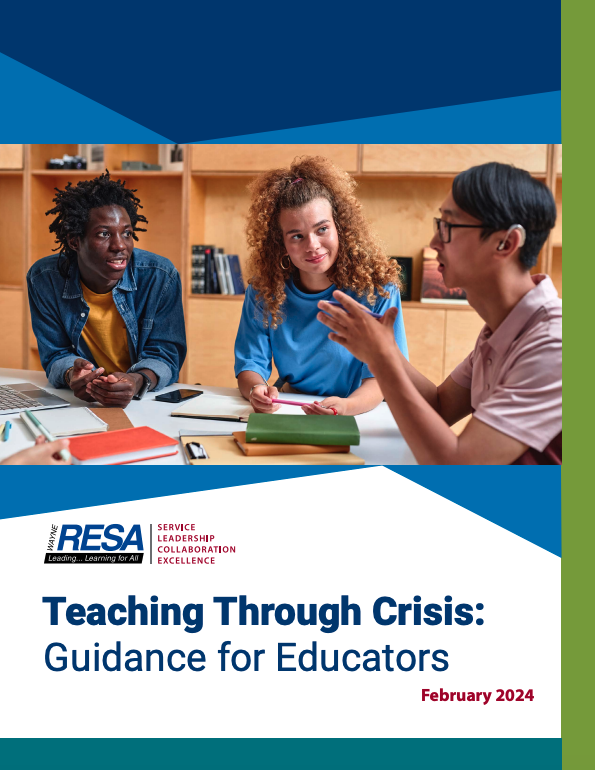 In times of crisis, educators play a central role in guiding students through challenging conversations with sensitivity and resilience. Teaching Through Crisis is a comprehensive resource designed to equip educators with tools and strategies necessary to navigate complex classroom discussions, fostering a supportive and inclusive learning environment. This document addresses key themes, including the creation of enabling conditions, immediate practices for responding to crises, and methods for repairing harm and restoring relationships post-discussion.
In times of crisis, educators play a central role in guiding students through challenging conversations with sensitivity and resilience. Teaching Through Crisis is a comprehensive resource designed to equip educators with tools and strategies necessary to navigate complex classroom discussions, fostering a supportive and inclusive learning environment. This document addresses key themes, including the creation of enabling conditions, immediate practices for responding to crises, and methods for repairing harm and restoring relationships post-discussion.
Purpose:
The purpose of this guidance is multifaceted:
It aims to empower educators to create a classroom atmosphere conducive to navigating crises, cultivating what Dr. Martin Luther King Jr. envisioned as the "Beloved Community."
It provides practical insights and practices for helping teachers navigate the aftermath of events involving tragedy or injustice in real-time, ensuring educators can respond with care and empathy.
Finally, it delves into the vital process of repairing harm and restoring relationships after challenging discussions, promoting healing and resilience within the educational community.
As we embark on this journey together, Teaching Through Crisis serves as a valuable tool for educators committed to fostering not only academic growth but also the emotional and social well-being of their students.
Student Voter Registration Requirement
Michigan Law Requires Student Voter Registration in High Schools
PA 258 requires schools to provide high school students ages 16 to 18 with the opportunity to pre-register or register to vote. Wayne RESA is excited to partner with The Civics Center to help schools register students to vote. Our vision is that, rather than a bureaucratic requirement that schools must “check off the list,” voter registration will be an exciting student-led event that encourages civic participation. Scroll down to learn more.

Find out how The Civics Center can help you empower your students by running peer-to-peer voter registration drives in school:
- Download their free, Michigan Teacher Toolkit with this form.
- Schedule a One-on-One session with Manager of Educator Development, Charlotte Nichols, a former social studies teacher, department chair and curriculum writer. She knows how hard educators work, and wants to make adding voter registration to your classrooms easy for you. Questions about voter registration laws and policies in your state? How best to incorporate voter registration into your lessons in authentic and meaningful ways, tailored to your specific community? Charlotte would love to be a supportive thought partner and can provide you with a cache of resources and materials to meet your needs. Schedule a one-on-one meeting on the calendar.
- Sign up for a free, 1-hour Run-a-Drive virtual workshop.
- Attend the next free, in-person workshop at Wayne RESA. Join the Wayne RESA Social Studies listerv so you'll be notified when we schedule the next session.
Professional Development


